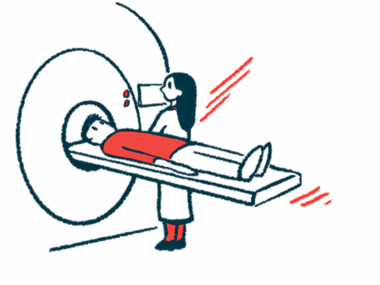#ECTRIMS2019 – Younger MS Patients at Higher Risk for Cardiovascular Diseases, Large Swedish Study Finds
Written by |

People with multiple sclerosis (MS) are more likely to develop cardiovascular diseases than the general population, according to a large Swedish nationwide study.
This risk is higher for patients diagnosed before age 40, the study found.
Fredrik Piehl, MD, PhD, from Karolinska University Hospital, Sweden, presented the data at the 35th Congress of the European Committee for Treatment and Research in Multiple Sclerosis (ECTRIMS), being held in Stockholm, Sweden, Sept. 11-13.
The presentation was titled “Cardiovascular disease in patients with multiple sclerosis: a nationwide cohort study in Sweden.”
To learn more about the incidence of cardiovascular disease among recently diagnosed MS patients, the researchers analyzed data from individuals enrolled in the Swedish National Patient Register, and the Swedish Prescribed Drug Register — a database of every patient in the country who receives a prescription. All were diagnosed with MS between 2008 and 2016.
For each MS patient, the team included 10 sex- and age-matched healthy people (controls) living in the same region.
Overall, researchers analyzed 6,602 people with MS (mean age of 40.9 years, 68.5% women), and 61,828 controls (mean age of 41.2 years, 68.6% women).
Connect with other people and share tips on how to manage MS in our forums!
In the 10-year period prior to MS diagnosis, patients had higher rates of cardiac problems compared with those who were not later diagnosed with the disease. Stroke affected 2% of patients versus 0.6% of controls. Transient ischemic attack, also referred to as a “mini stroke,” was detected in 0.4% of those with MS, while it affected 0.2% of the control group.
Further, peripheral vascular disease, also called peripheral arterial disease — a condition characterized by restricted blood flow to vessels outside the heart and brain — affected 0.3% of people with MS and 0.2% of those without the disease.
The analysis found that, in the year before diagnosis, MS patients were more often prescribed certain medications. These include diuretics (8.4% vs 6.9% in the control group), vasodilators (1.4% vs 1.0%), lipid (fat)-modifying agents (5.6% vs 4.8%), and calcium channel blockers (3.7% vs 3.1%). The medicines are commonly prescribed to relax blood vessels, and increase the supply of blood and oxygen to the heart.
Following the MS diagnosis, patients had a higher risk for major adverse cardiovascular events (or MACE), heart failure, stroke, and transient ischemic attack compared with matched controls.
Moreover, MACE, heart failure, and transient ischemic attack, plus bradycardia (critical slower heart rate), were found to be more common among younger people with MS —those less than 40 years old at diagnosis.
The risk for bradycardia was only higher among young people with MS and those without a previous history of cardiovascular disease.
Researchers noted that, while the cardiovascular disease risk was similar for both males and females, men had a higher risk of heart failure.
Overall, Piehl concluded that “MS patients, after MS diagnosis, have an increase incidence of MACE, TIA [transient ischemic attack], and HF [heart failure] irrespective of CVD [cardiovascular disease] history, compared with the MS-free population.”
“The age-matched relative risk of MACE, TIA, and heart failure was particularly high among younger MS patients,” he added.





